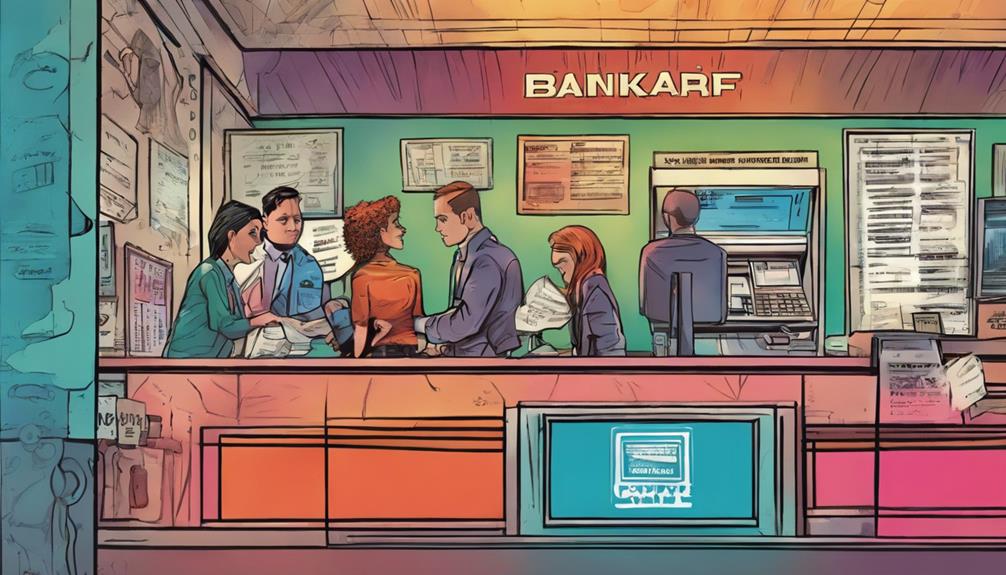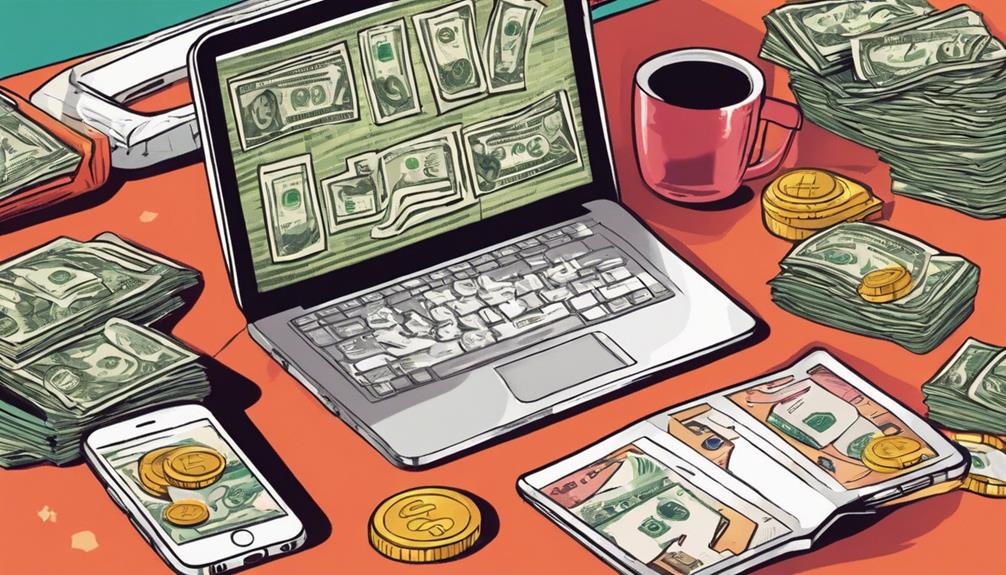Unlocking the mysteries behind cashier’s checks involves understanding their function as secure, bank-issued payment instruments. Supported by the funds of your bank, these checks provide a dependable option for significant transactions. You can conveniently acquire them from banks or credit unions, but be sure to have the required documentation. Maintain security by storing them in a safe place and only endorsing them when necessary. Stay vigilant against scams and always confirm the legitimacy of any checks you receive. If you misplace one, take prompt action by contacting your bank. There is a wealth of information to discover about this crucial financial tool and its alternatives.
Key Takeaways
- Cashier's checks are secure payment tools backed by the issuing bank, ensuring reliability for large transactions.
- Obtain cashier's checks by confirming sufficient funds, providing ID, and visiting a financial institution.
- Major banks and credit unions typically offer cashier's checks, with credit unions often having lower fees.
- Be aware of fraud risks; always verify the authenticity of checks before accepting them to avoid financial loss.
Understanding Cashier's Checks
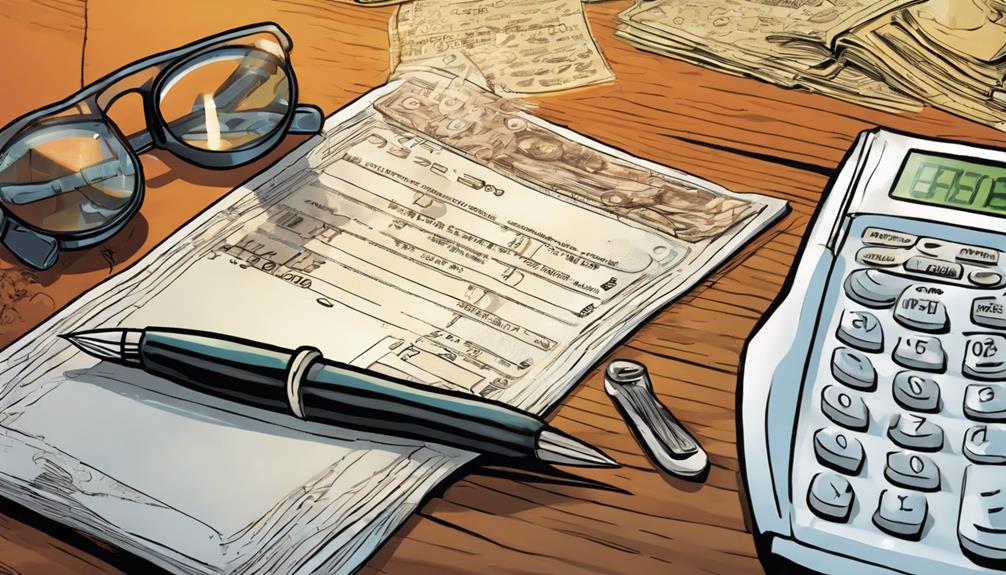
Understanding cashier's checks means recognizing them as secure, bank-issued payment tools that guarantee funds for your transactions.
Unlike personal checks, cashier's checks provide a reliable form of payment because they're backed by the issuing bank's funds. This guarantees the money's availability, reducing the risk of bouncing.
With specialized security features, these checks are widely accepted for significant purchases, like vehicles and real estate, making them a preferred choice for sellers.
While you may encounter higher fees than with money orders, the security they offer is worth it.
Funds from cashier's checks typically become available immediately upon deposit, allowing you to complete transactions without delays.
How to Obtain Cashier's Checks
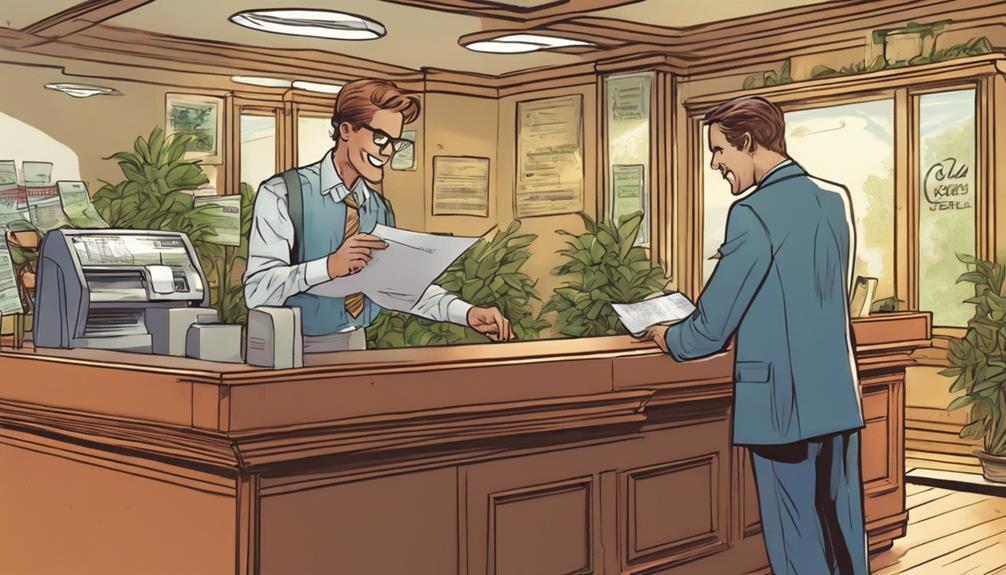
To obtain a cashier's check, start by confirming that you have sufficient funds in your account. Next, choose a financial institution where you'll request the check. Gather necessary documents like your ID and account information, and double-check the payment recipient's details for accuracy. Once you're ready, visit the institution to request your check.
Here's a quick overview to help you:
| Step | Description |
|---|---|
| Confirm Funds | Verify you have enough in your account. |
| Choose Institution | Select a bank or credit union. |
| Gather Documentation | Prepare ID and account info. |
| Verify Recipient Details | Double-check the payment information. |
Following these steps will guarantee a smooth process in obtaining your cashier's check.
Where to Get Cashier's Checks
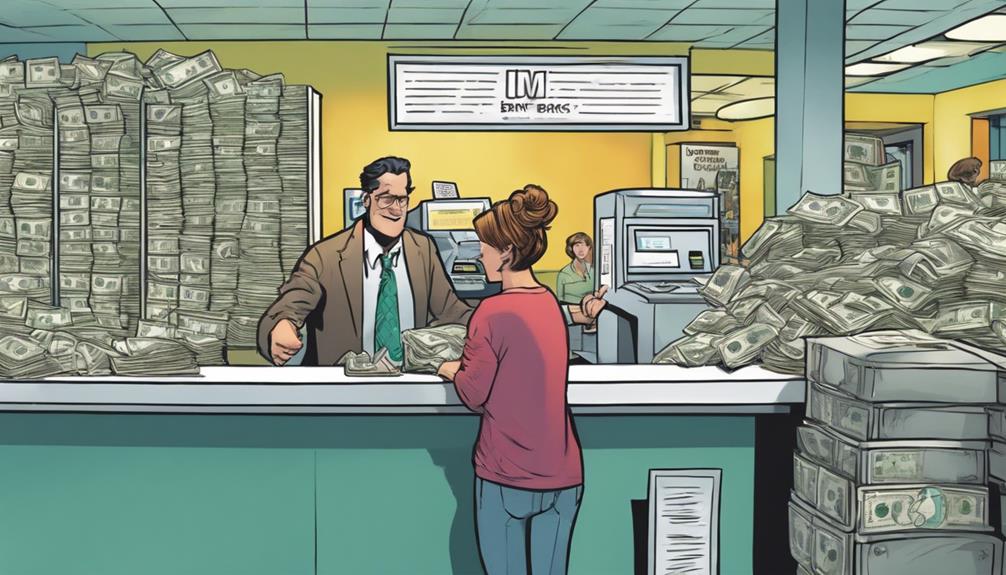
You can get cashier's checks from various places, including traditional banks and credit unions.
Most major banks, like Bank of America and Wells Fargo, offer this service to account holders. Credit unions also provide cashier's checks, often with lower fees for their members. Additionally, savings and loan associations may issue them.
Brokerage firms can help if you're involved in security transactions. Money service businesses, such as Western Union and MoneyGram, are other options, though they might charge higher fees.
If you need a quicker alternative for smaller amounts, consider money orders or certified checks, which can provide similar guarantees.
Always compare costs and availability to choose the best option for your needs.
Security Measures for Cashier's Checks

Securing your cashier's checks is essential to prevent loss or theft during transactions.
First, keep your checks in a safe place, like a locked drawer or a safe, until you're ready to use them.
Endorse the check only when you're prepared to make the payment, adding an extra layer of security.
Use the checks promptly, as they typically expire in 90 to 120 days.
Be cautious about sharing personal information during transactions, and always verify the authenticity of the checks you receive to avoid scams.
If a check seems suspicious, don't hesitate to ask the issuing bank for confirmation.
Monitoring your transactions closely will help you spot any signs of fraud early on.
Risks of Using Cashier's Checks
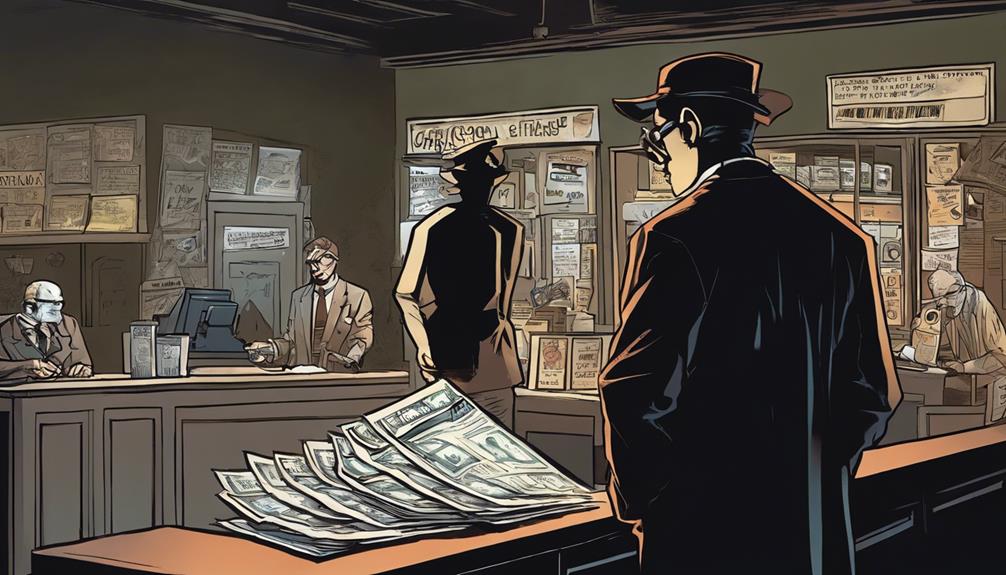
While keeping cashier's checks secure is important, it's also essential to be aware of the risks associated with using them in transactions.
Scammers often exploit cashier's checks, creating fraudulent versions that may look legitimate at first glance. If you accept a fake check, you could be held liable for the amount once your bank identifies the fraud.
Additionally, you should be cautious about sharing personal information, as this can lead to identity theft. Always verify the authenticity of checks before accepting them, especially in large transactions.
What to Do if Lost
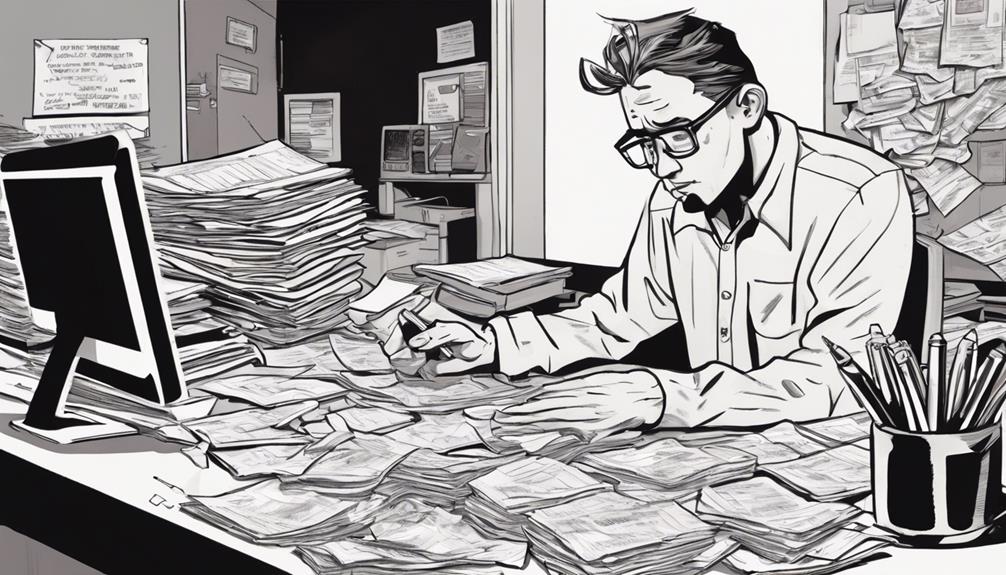
Losing a cashier's check can be stressful, but taking immediate action is essential to protecting your funds.
First, contact the bank or financial institution that issued the check as soon as possible. They'll likely ask you to provide details like the check number, amount, and payee. They may initiate a stop payment on the lost check to prevent unauthorized use.
After that, you'll need to fill out any required forms to request a replacement check. Keep in mind that documentation may be necessary, so be prepared.
Timely reporting is vital to minimize potential financial loss, so don't delay in addressing the issue. Taking these steps quickly can help you regain control over your funds.
Comparing Alternatives to Cashier's Checks
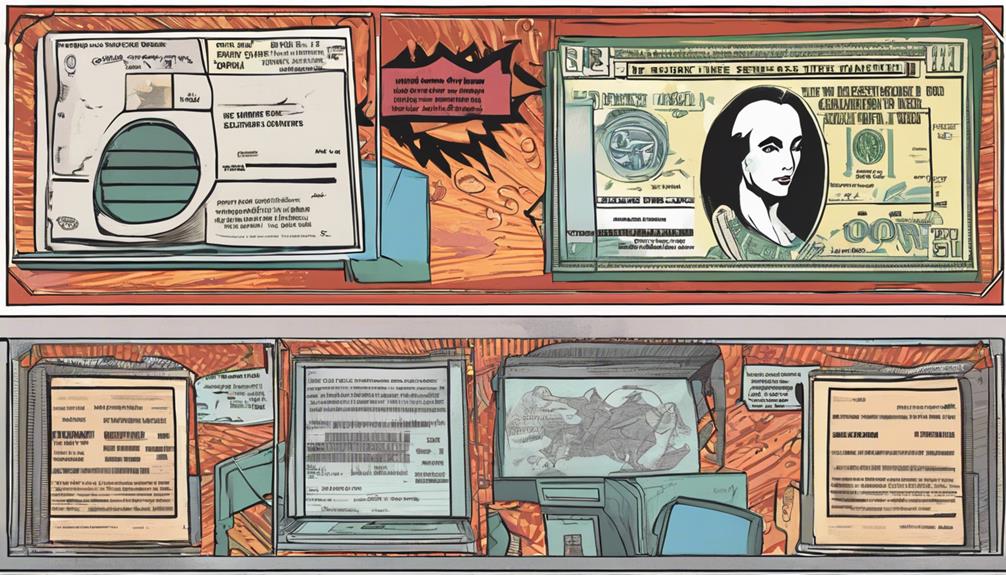
If you've explored what to do after losing a cashier's check, you might also want to contemplate the alternatives available for secure payments.
Money orders are one option, often easier to obtain and suitable for smaller transactions. They're backed by the issuer, providing a level of security similar to cashier's checks.
Another choice is certified checks, which are personal checks verified by your bank, ensuring funds are available. While they may not offer the same level of security as cashier's checks, they can still be a reliable option.
Each alternative has its pros and cons, so weigh factors like cost, acceptance, and convenience to decide which method meets your needs best.
Conclusion
In summary, whether you're making a significant purchase or ensuring secure transactions, understanding cashier's checks is essential.
You can navigate the process, protect your funds, and avoid common pitfalls.
By knowing how to obtain them, where to get them, and what to do if they're lost, you can approach your financial dealings with confidence.
Embrace the security of guaranteed funds, appreciate the peace of mind they offer, and make informed decisions for a smoother transaction experience.
